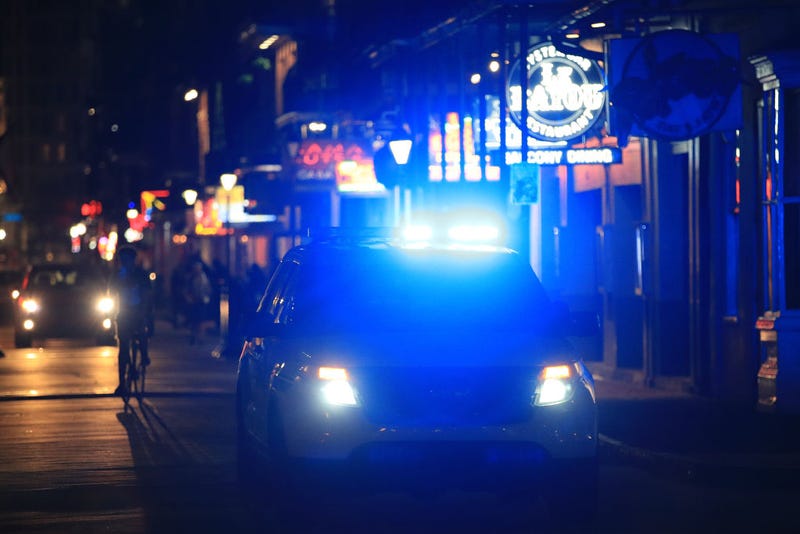
What caused violent crime to spike in 2020? There are a lot of conflicting theories, and they tend to fall out along ideological lines. Paul Cassell is a law professor at the University of Utah and a former Federal judge, and he says one must consider that homicides and shooting crimes spiked while other street crime remained the same, began just days after the murder of George Floyd, and that the spike is largely confined to major cities. Newell invited Zach Smith onto the program Monday morning - Smith is a legal fellow in the Meese Center for Legal and Judicial Studies at the Heritage Foundation.
“Would you agree or disagree about folks putting up a lot of different reasons for this that all seem to match their ideological bent?” Newell asked. “It's all about the messaging. As a former law enforcement officer, I see through the smoke screens fairly quickly, having lived it for 40 years of my life. I think this law professor is pretty spot on.”
“We've heard a lot of things being blamed for this spike in violent crime, from COVID to the unrest related to George Floyd's death, a lot of other factors,” Smith said. “But one of the things that Paul Cassell highlights is something he calls the Minneapolis effect. It's basically that police, because they're being demonized, they're demoralized, are really not engaging in the type of proactive policing that we need to see, and that because they don't have the resources and the ability to go out on the streets, engage in proactive policing, the results speak for themselves.”
“Interestingly, in his law review article, he debunks what everyone else is saying with empirical data,” Newell said. “He takes that same empirical data to support his premise as to the timing, the duration, how this came about, and so forth.”
“He looked at a series of shootings and homicides in cities around the country, particularly in Chicago, and kind of debunked many of the other theories, and showed that the timing of the spike in violent crime coincides with a lot of the calls to defund the police and the effort to make it more difficult for police officers to do their jobs,” Smith agreed. “He's calling this the Minneapolis effect because a lot of this happened in the wake of George Floyd's death and the calls for reforming law enforcement that happened after that. If your listeners remember several years ago, after the violence in Ferguson, Missouri, a lot of folks talked about something called the Ferguson effect where police officers weren't able to go out and engage in proactive policing. And so really what Paul Cassell is saying is the Minneapolis effect is the Ferguson effect on steroids. And so if we want to combat this, we need to support our police officers, make sure they have adequate funding and staffing to do their jobs, and that when they arrest criminals, prosecutors in these cities bring charges where appropriate and hold these individuals accountable.”
“He doesn't actually come right out and say this, but he's saying this in so many words - good, clean, aggressive, proactive law enforcement is a good thing,” Newell continued. “It kind of creates a safe harbor. It doesn't eliminate all crime, and most people involved in crime fighting understand that that's not the case. If you just think about prostitution, we've been fighting prostitution since the Roman times and is hasn't gone away. It's just a question of how much are you willing to accept within your community because it's a transient type of crime. It comes in, it goes out, but the fact of the matter is it's not an all or nothing proposition, mutually exclusive to other things. But what really struck me more than anything is how obvious and apparent all of this truly is. I mean, when you think about in Minneapolis, didn't we just give back a piece of land that we had no police control over at all? In fact, the police weren't even going in there. They just cleaned it up three weeks ago, as I recall.
“There are two points worth making here,” Smith said. “First it's often the poorest members of the community that bear the consequences of decreased policing. We've seen out in San Francisco, where their rogue prosecutor out there is not prosecuting what he calls victimless crimes - which I dispute - things like theft, prostitution, simple possession. And we see there's Walgreens leaving the area, Targets closing early, and a whole host of other stores experiencing stuff they just can't bear. And so when those stores leave the area, it's most difficult for the poor members of the community to find the resources they need from other stores or in other ways. So the poorest members of the community bear the brunt of increases in crime. The second point that's worth keeping in mind is that even if police are doing their job, making arrests, gathering evidence, unfortunately in many of these cities like San Francisco, Chicago, Philadelphia, St. Louis, they have these rogue prosecutors who have been backed by George Soros and other liberal billionaires who are simply refusing to do their jobs and enforce the laws on the books. And so again the results sadly speak for themselves, and we're seeing these spikes in violent crimes that can really only be remedied if those prosecutors start doing their jobs and start prosecuting the laws in the books.”
Hear the entire interview in the audio player below.
